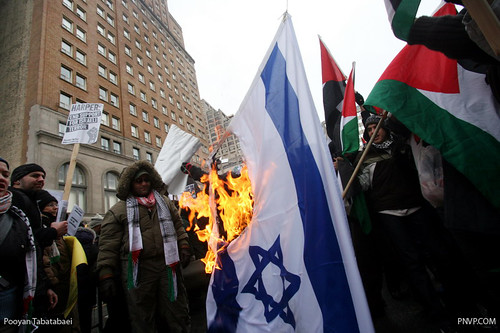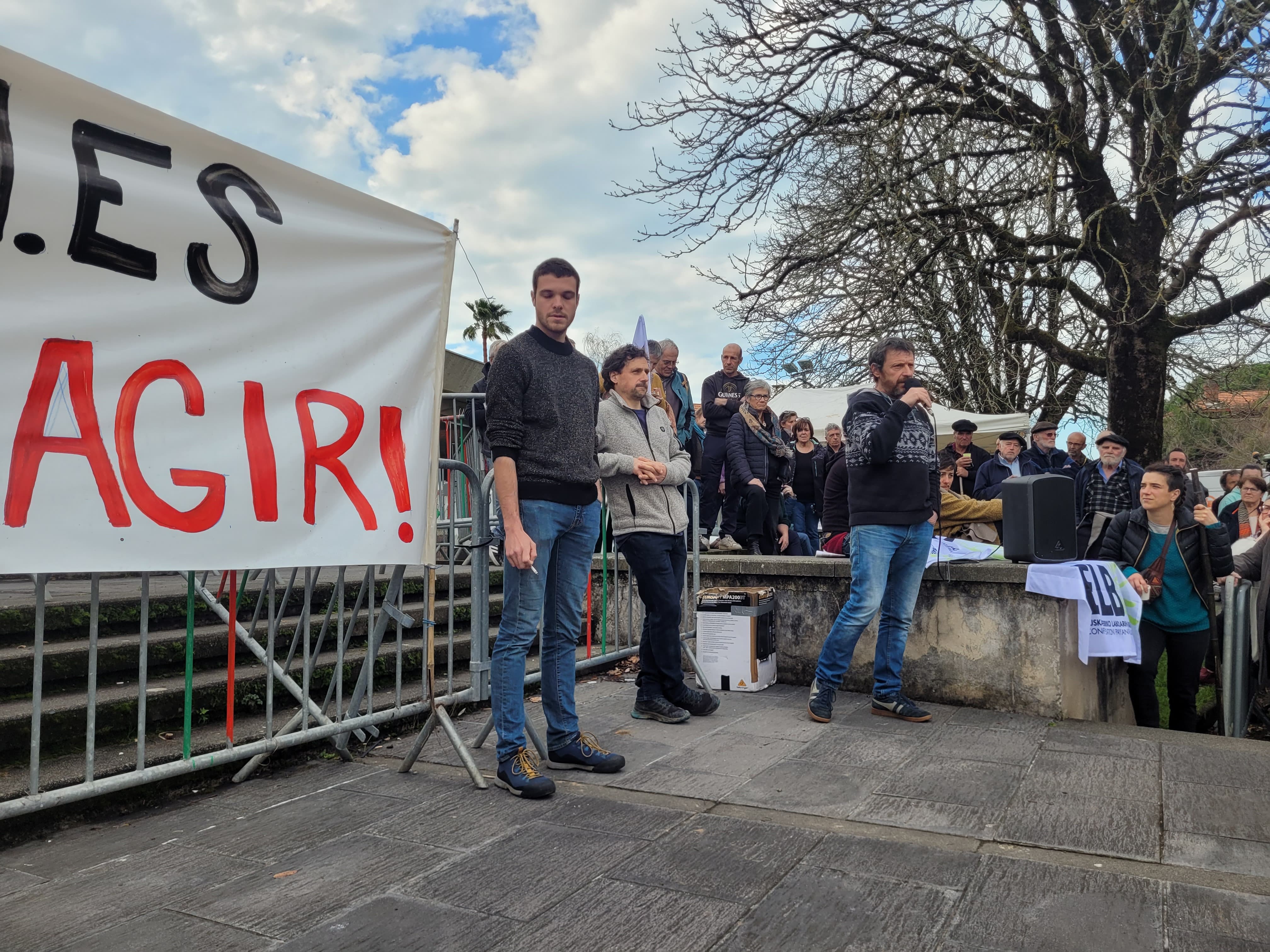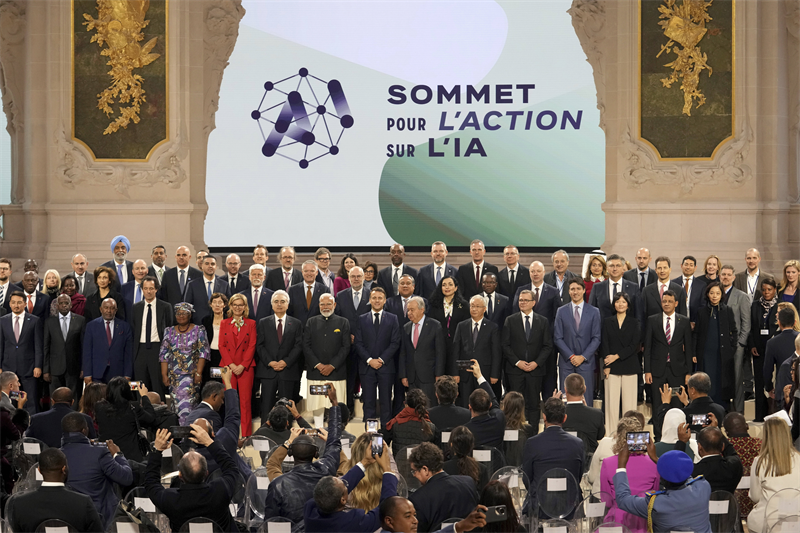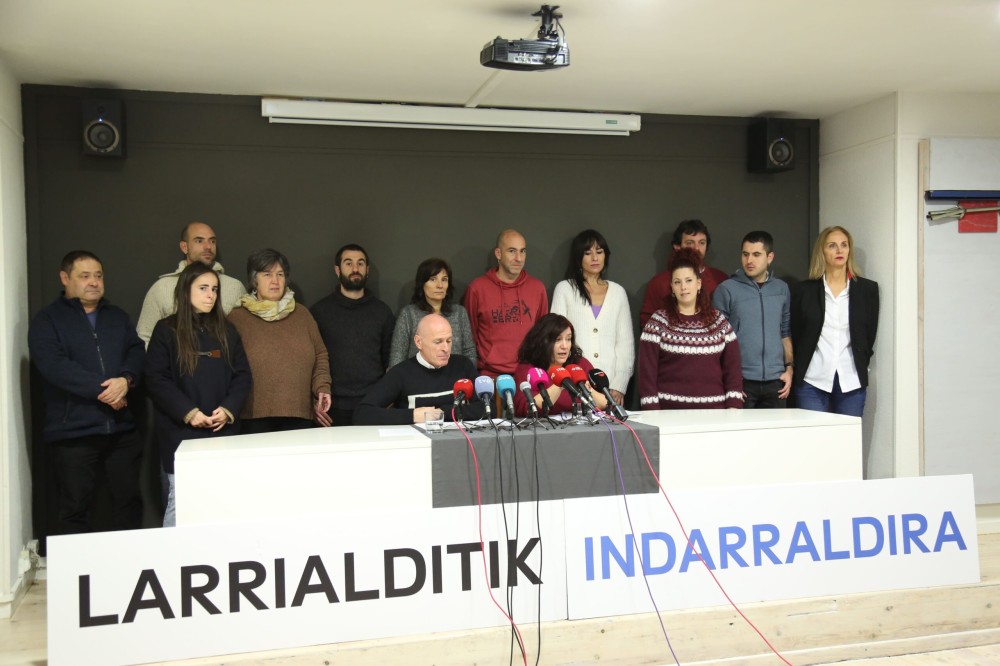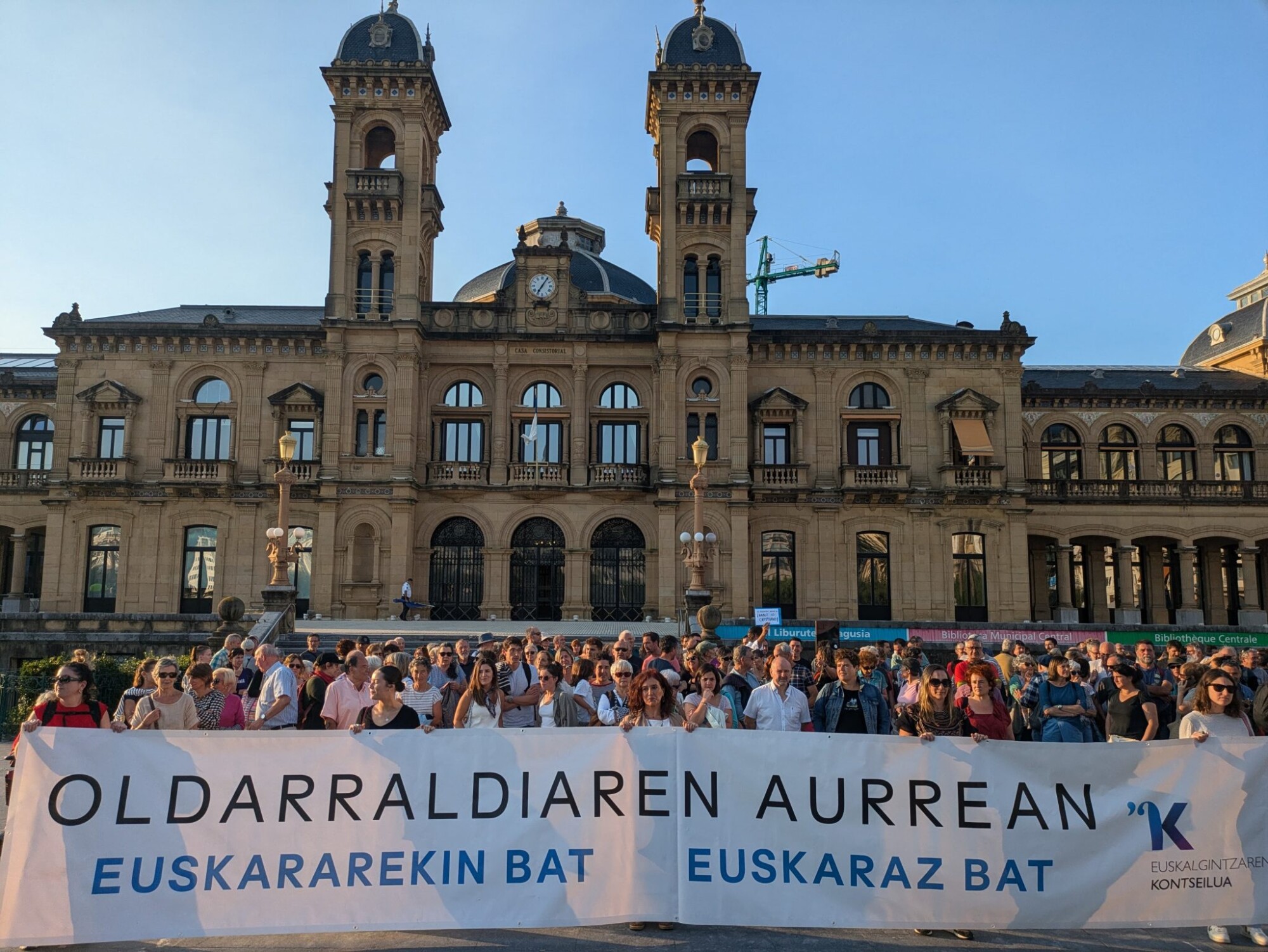The right to decide looks to the future
1. The nature of human rights. The right to decide is a human right. Not only because it has been recognized in various international manifestations, but also because it is based on the choice and decision that corresponds to human identity. Each individual as a person, we are part of a people and a society, and as far as that belonging is concerned, our choice is the human option that corresponds to it.
The Abertzales must make a special effort to demonstrate and demonstrate that the right to decide has a nature and a range of human rights. In this political struggle, the ideological key is that nationalism can win democratically. Just as citizenship is inherent to every individual and is linked to the status of a member of society, nationality is linked to the right to decide and must be developed assuming the option of the person as a rank.
Recognition of the democratic level of human rights to decision-making is essential in order to be able to link decision-making rights with the future and solidarity. This is one of the major challenges facing the Abertzales in the political struggle for the future. In fact, it is much more important than the question why on this human democratic right, and in order to respond to the latter it is necessary to clarify the character of law.
2. The democratic updating of historical rights. The Basque claims were made in the 19th and 20th centuries on the basis of the demands of the old law, excerpts or historical rights, for example, the recovery of whole forces and other similar expressions. In this sense, they have stopped in various songs, slogans and names.
But from a democratic perspective of the present day, these kinds of demands of old laws or historical rights have become obsolete and are not defensible today, among other things because political rights are based on human dignity and are not inherited, but arise from the status of society and the person and, on the other hand, the updating of historical rights can only be carried out through democratic decisions.
In this area, there has been an important rapprochement with Basque nationalism in recent decades, making collaboration more viable. In this sense, it is enough to remember that in the times of reform after the Franco regime, the demands of EAJ-PNV were still configured with references to historical rights and that this practice led them to vote against self-determination in the constitutional debate. Lately, however, they have travelled in a different way, especially following the so-called “Ibarretxe Plan” and have come to take an initiative to incorporate the right to decide on this year’s constitutional change. The Abertzale left has always been in favour of self-determination.
The point of disagreement that we have with the Abertzales is that which concerns the areas of decision. The first difference is that there are those who distinguish the subject or owner of the right to decide, on the one hand, and the scope to develop, on the other; the arguments of this distinction are that Euskal Herria not only does not have any political institution, but also that different co-relations of forces and starting points or political speeds must be foreseen, in the CAV, in Navarra and in Iparralde. Others, however, are made intolerable, or rather made intolerable, that distinction between areas, but also in this area an approximation is taking place between the Abertzales and, undoubtedly, the understanding of the diachronic territoriality is increasingly accepted.
3. Guarantee and foundation of social solidarity and the future. A society needs decision-making power to bet on or choose solidarity. Like individuals. Solidarity is the gift of peoples and free people.
This is not merely a formalistic argument, but has consequences in everyday practice and in efficiency. On the other hand, the right to decide is a guarantee for the future and the environment, because these bets, like every defense of the land, are based on the attachment of society.
Basque nationalism will play the great political challenge of the future, precisely in the key to guiding solidarity. And that is that this deep crisis has stirred up the roots of the future and comes to touch with the hallway of the door of the future. The main demands of the Basque Country and of nationalism, self-determination and territoriality cannot and must not be left out of the daily and pressing needs of life.
It has always made sense, but perhaps now more than ever it is that national liberation meets with social liberation.
Gabonetako argiak pizteko ekitaldia espainolez egin izanak, Irungo euskaldunak haserretzeaz harago, Aski Da! mugimendua abiatu zuen: herriko 40 elkarteren indarrak batuta, Irungo udal gobernuarekin bildu dira orain, alkatea eta Euskara zinegotzia tarteko, herriko eragileak... [+]
Irailaren 9ra gibelatu dute Kanboko kontseiluan gertatu kalapiten harira, hiru auzipetuen epaiketa. 2024eko apirilean Kanboko kontseilu denboran Marienia ez hunki kolektiboko kideek burutu zuten ekintzan, Christian Devèze auzapeza erori zen bultzada batean. Hautetsien... [+]
Oinarrizko maia komunitateko U Yich Lu’um [Lurraren fruitu] organizazioko kide da, eta hizkuntza biziberritzea helburu duen Yúnyum erakundekoa. Bestalde, antropologoa da, hezkuntza prozesuen bideratzaile, eta emakumearen eskubideen aldeko aktibista eta militante... [+]
Zer jakin behar dut? Norekin erlazionatu behar dut? Non bizi behar dut? Ardura horiekin gabiltza gizakiok gure gizarteen baitan bizitza on baten ideia bizitzeko bidean. Ondo erantzuten ez badakigu, bazterretan geratuko garen beldurrez.
Joan den astean, kanpoan geratzearen... [+]









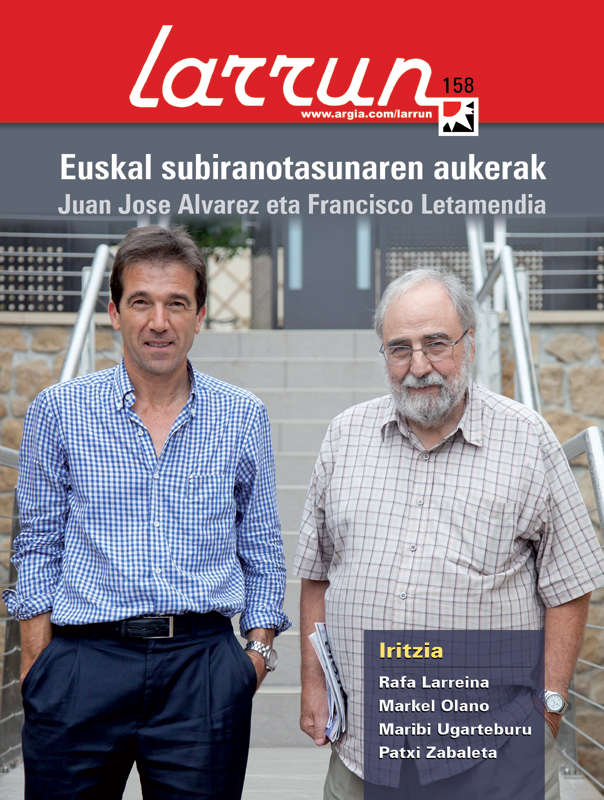

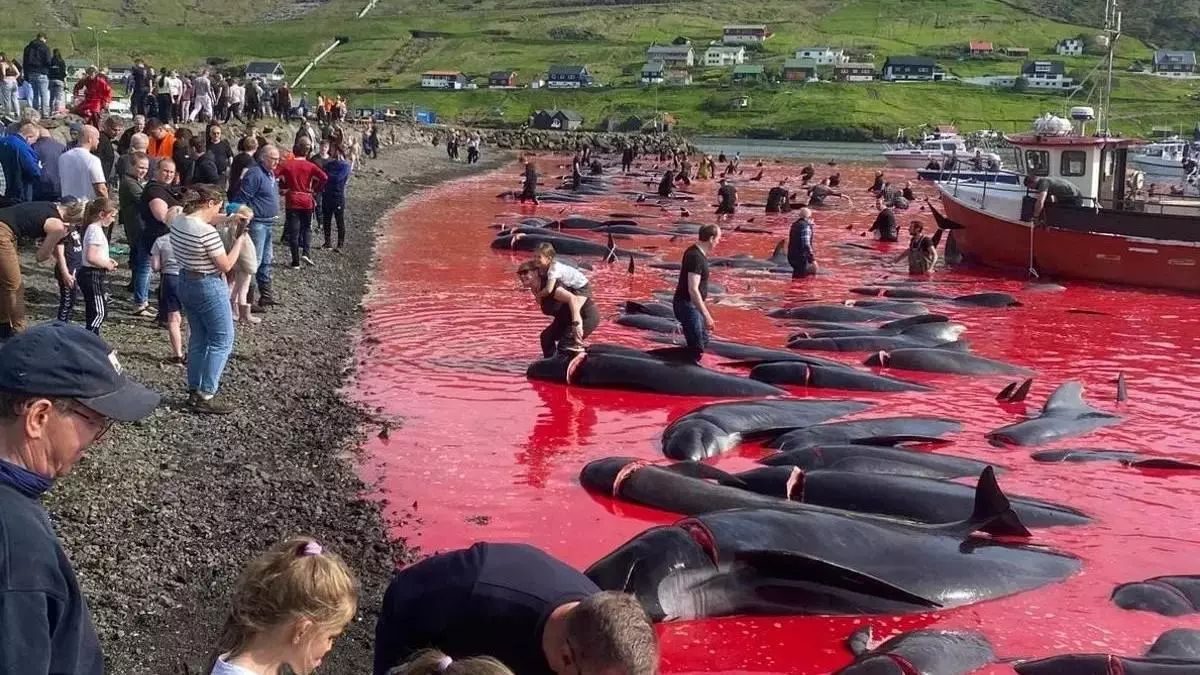
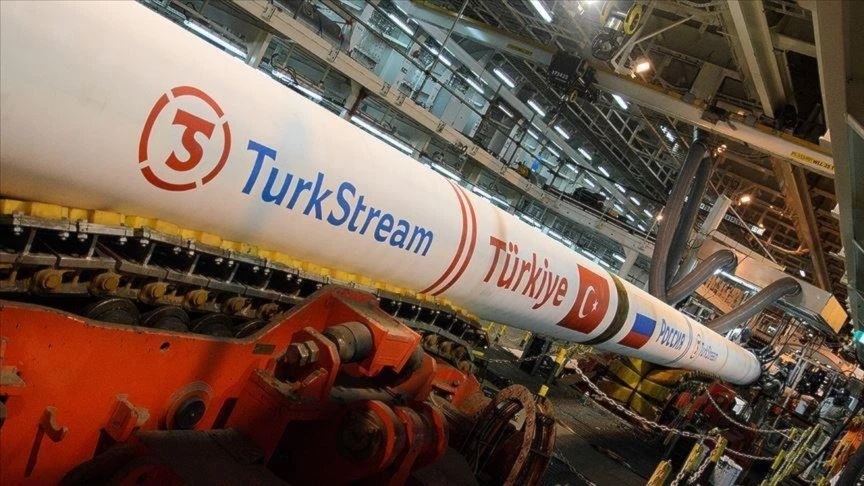
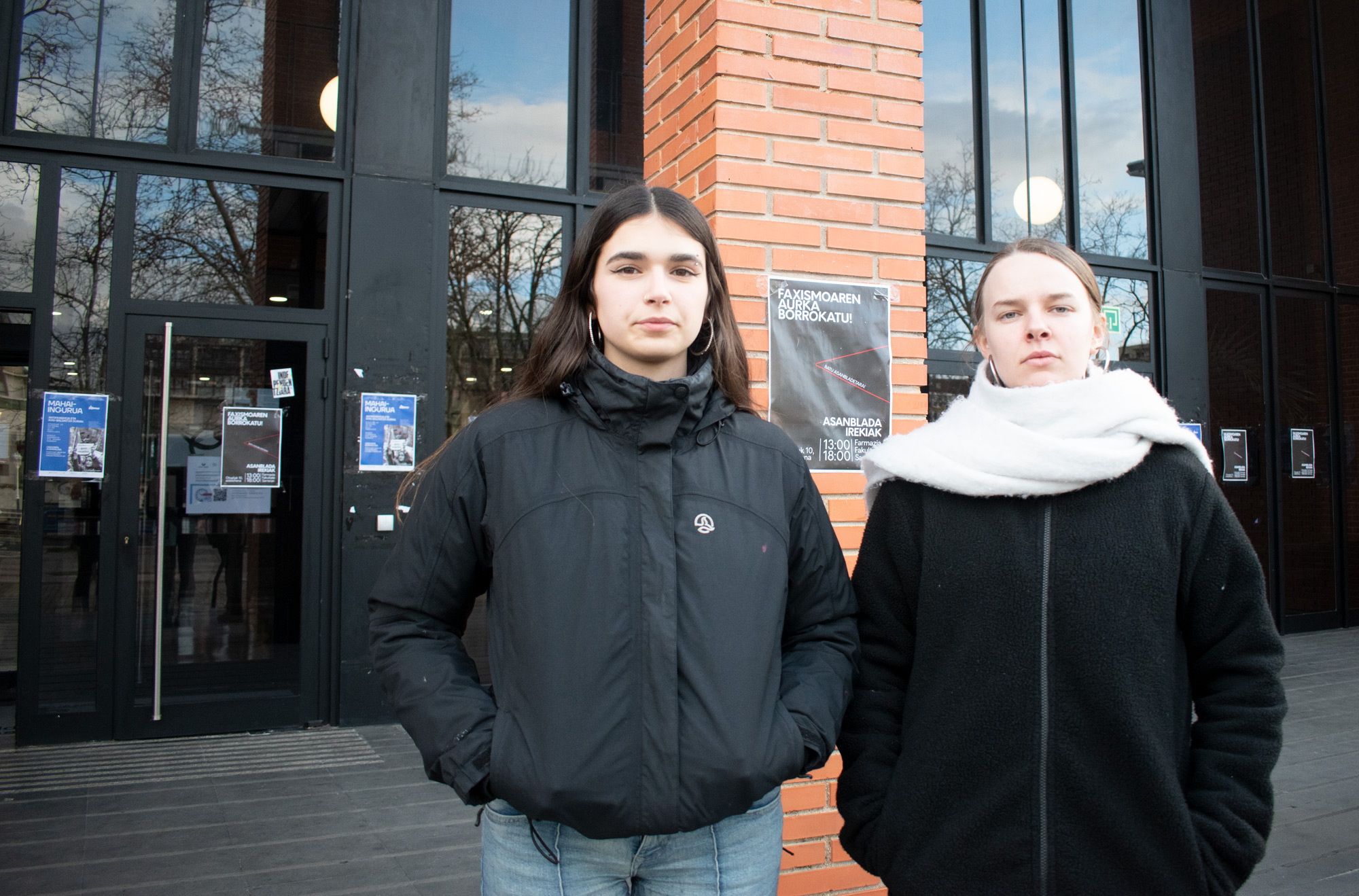
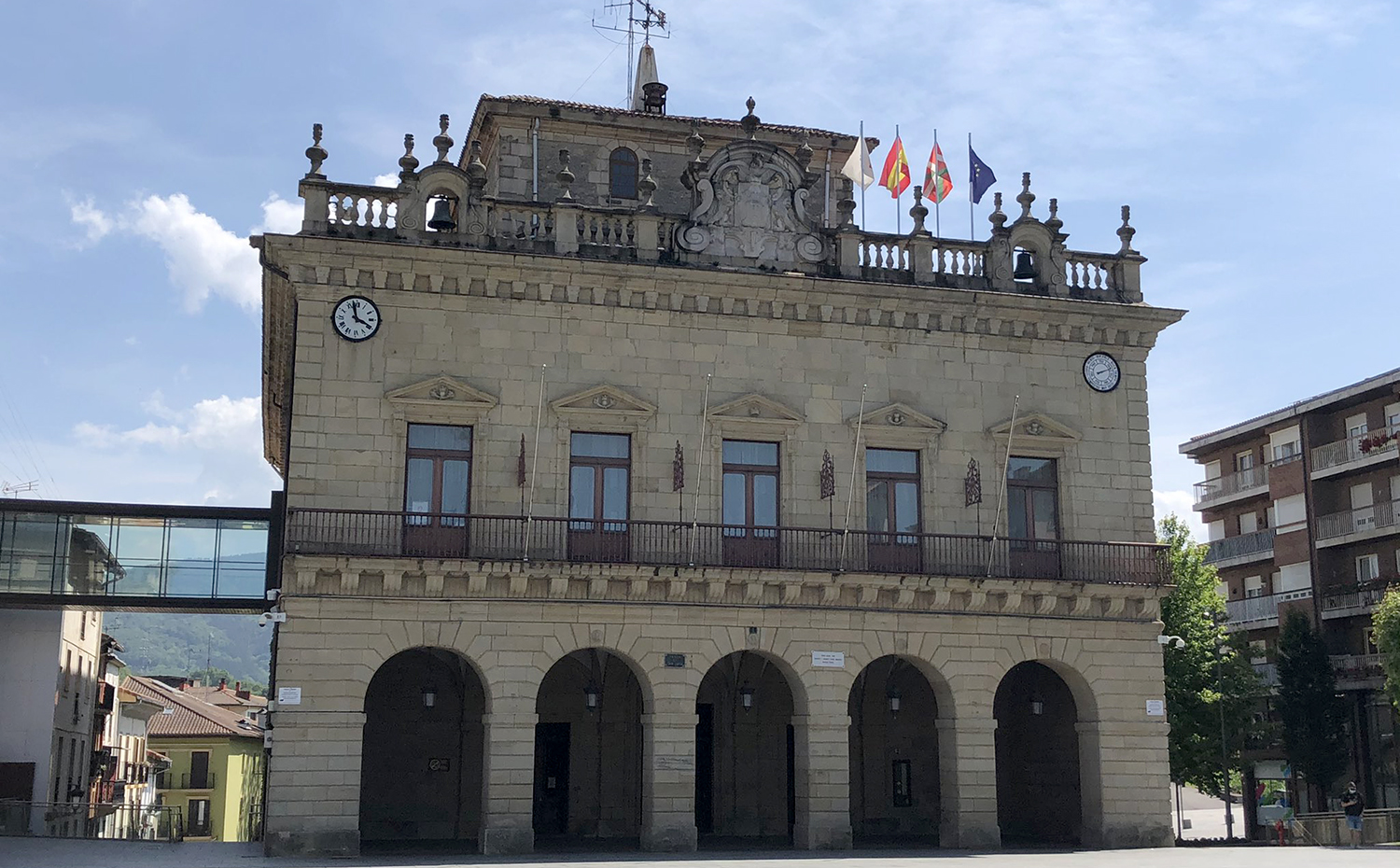

_2.jpg)


